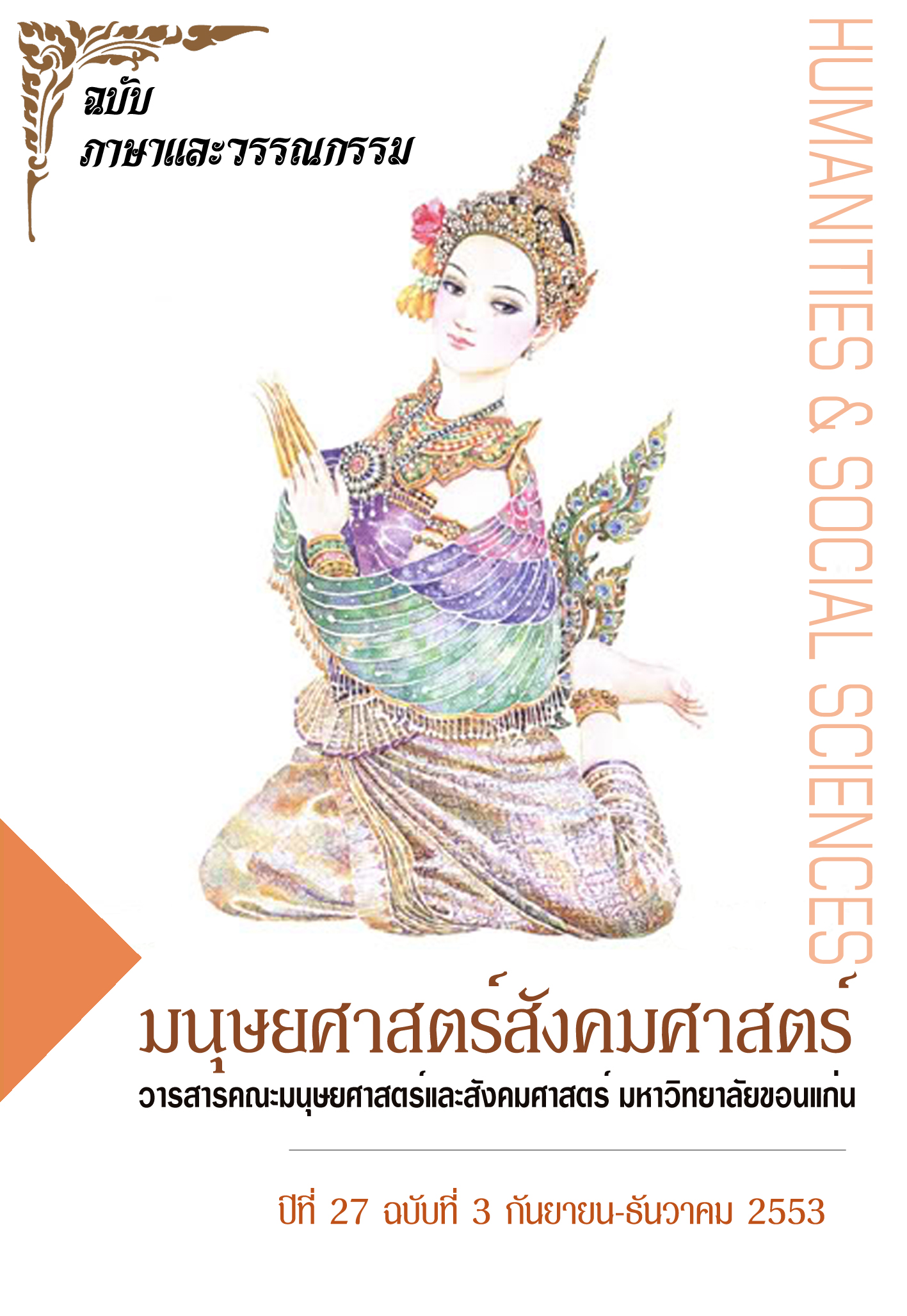ภาพแทนผู้หญิงในวรรณกรรมในแบบเรียนลาวชั้นมัธยมศึกษาปีที่ 3 เรื่อง “คนงาม”
Abstract
บทคัดย่อ
บทความนี้แสดงให้เห็นว่าวรรณกรรมอยู่ในฐานะตัวบททางวัฒนธรรม (Cultural Text) ที่นำเสนอภาพแทน (Representation) ผู้หญิงที่เกี่ยวข้องกับการสร้างอัตลักษณ์ผู้หญิงในสังคม ผ่านการนิยามผู้หญิงในสถานะต่าง ๆ บทความนี้จึงมุ่งนำเสนอภาพแทนผู้หญิงในวรรณกรรมลาวร่วมสมัยจากเรื่องคนงามในแบบเรียนลาวชั้นมัธยมศึกษาปีที่ 3 ประการที่สอง คือ เพื่อศึกษาปัจจัยที่มีอิทธิพลต่อการนำเสนอภาพแทนผู้หญิงในวรรณกรรมลาวร่วมสมัย
วรรณกรรมเรื่องคนงามได้แสดงให้เห็นภาพแทนผู้หญิงเกี่ยวเนื่องกับการเป็นผู้ทำประโยชน์เพื่อสังคมตามลักษณะของคนใหม่แบบสังคมนิยม (New Socialist Man) ในอุดมคติรัฐ แต่อีกส่วนหนึ่งยังมีภาพแทนผู้หญิงที่ขัดขืนไม่ยินยอมทำตามนโยบายรัฐ วรรณกรรมเรื่องคนงามจึงเป็นตัวแทนอุดมการณ์อีกกระแสหนึ่งที่ขัดแย้งกับวาทกรรมกระแสหลัก ภาพแทนของผู้หญิงที่ปรากฏจึงได้รับอิทธิพลมาจากกระแสอุดมคติของพรรคที่พยายามครอบงำอุดมการณ์ (Hegemony) คนกลุ่มต่าง ๆ และความพยายามในการนำเสนออุดมการณ์ที่แตกต่างไว้ในตัวบทอย่างแนบเนียน
Abstract
This paper would like to present about Literary works as cultural texts that reflect the representation of women in terms of their identities in the society through definitions of women in various situations. The purpose of this paper, which employs concepts regarding representation, identities, and feminism in Khon-ngam – the short story from secondary Lao textbook, are two-fold. Firstly, it is aimed at investigating the representation of women in contemporary Lao literature after the national and democratic revolution in 1975. Secondly, it aims to examine factors affecting the representation of women in Lao literary works.
The majority of women as reflected in Khon-ngam are represented as devoted individuals for the benefits of the society following the typical characteristics of the ideal new socialist man. Some women, nevertheless, are manifested as those who oppose and object to follow the governmental policy. The representation of women in Contemporary Lao Literature from secondary Lao textbook is thus influenced by the idealism of the Socialist party intended to conceal the hegemony of other groups, as well as by the attempt to neatly present different ideals in the contents.


